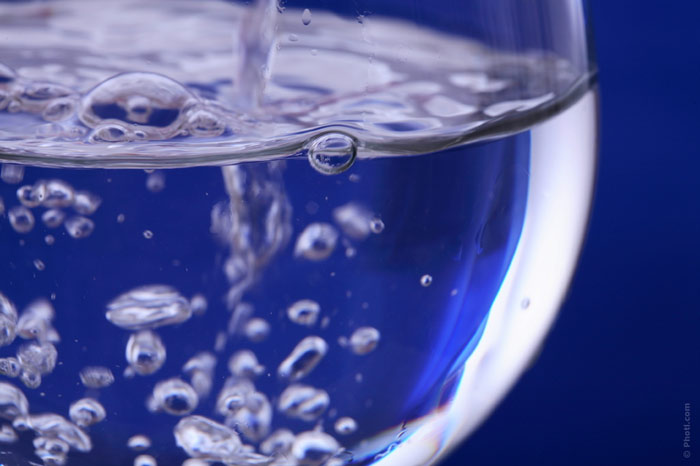During intense workouts our body loses a large amount of not only liquid, but also the nutrients that are necessary for the body to restore and lead a normal life. What is the best way to replenish the water balance: by drinking water or special sports drinks (isotonic), which contain all the necessary substances?

Water
If your jogging lasts no more than an hour at a moderate pace, your needs can be satisfied completely with water, and having bottles with sports drinks and tubes of special gels is not necessary.
Your average pace is the pace of running, during which you are able to hold a conversation without choking.
So, if your jogging lasts no longer than an hour while you maintain your average pace, your choice is water.
Isotonic drinks
Isotonic drinks are recommended for more complex workouts, when the efforts go beyond the usual loads. Many sports drinks do not have a very good reputation, as they contain large amounts of sugar, but in case of intensive training a large number of fast carbohydrates and a portion of electrolytes are just what you need!
When the load is light, using isotonic drinks does not make much sense since they will bring roughly the same benefit as plain water.
Recovery
Sports drinks contain an average of 20 to 50 kcal and 5 to 14 grams of sugar per 240 ml. Glucose (sugar) in this case is the fuel for muscles. Our body can get glucose from almost any product, but it is much easier and faster to allocate it from sugar. And the sooner it happens the better because during intense workouts our body simply does not have the time to wait until, for example, bread is digested in our stomach and decomposed into simpler components (including glucose). After long and intense workouts, a brief carbohydrate window opens, and at this time the muscles restock the depleted sugar best of all, which helps in the recovery and preparation for the next workout.
Carbohydrate window is the estimated period of 35-40 minutes after intense exercises. The existence of such a period is not confirmed scientifically.
After an active workout the body needs to replenish the balance of not only liquid, but also glycogen spent by the muscles.
During a workout, the body increases the level of adrenaline and cortisol, which continue their action after the training, destroying the protein tissue (muscles). To prevent this effect of reducing the muscle, it is important to use another hormone – insulin. It neutralizes the destructive action of cortisol, being its biochemical antagonist.
Insulin is produced when we take the so-called fast carbohydrates; it blocks the action of cortisol and adrenaline.
Except carbohydrates, the body which has received physical activity needs proteins. Muscle growth and physical recovery in the human body depend on the amino acids that comprise the protein. This means that during the carbohydrate window it is better to use protein products with high bioavailability (milk products, legumes, nuts).
Rapid rehydration
During intense workouts our body loses large amounts of water, sodium and potassium through sweat. Water is excellent for quenching thirst, while drinks with electrolytes help restore fluid and electrolyte balance more quickly. Sports drinks on average contain about 80 mg of sodium and 488 mg potassium per volume of 355 ml. This mixture of water, sugar and sodium helps our body to absorb the necessary moisture much faster than water.
Recipes of isotonic drinks
It is not necessary to buy special sports drinks in shops, some of them are quite simple to prepare at home.
Apple drink
- 2 cups of cold water;
- 1/4 cup of apple juice;
- 1 tablespoon of apple cider vinegar;
- sugar or honey to taste;
- a pinch of ground cinnamon or ginger.
Vegetable isotonic
- 1 liter of the vegetable juice you choose (you can make it from fresh beets or carrots at home);
- 1 cup of water;
- 1 cup of orange juice.
The basic version of isotonic
- 300 ml of any fruit juice;
- 200 ml of water;
- a pinch of salt.
Citrus isotonic
- 20 g of honey or sugar;
- 30 ml of lemon, orange or grapefruit juice;
- a pinch of salt;
- 400 ml of water.
An even simpler variant would be to dilute 2 tablespoons of honey in 1 liter of water or buy mineral water and let the gas rush out of the bottle.










